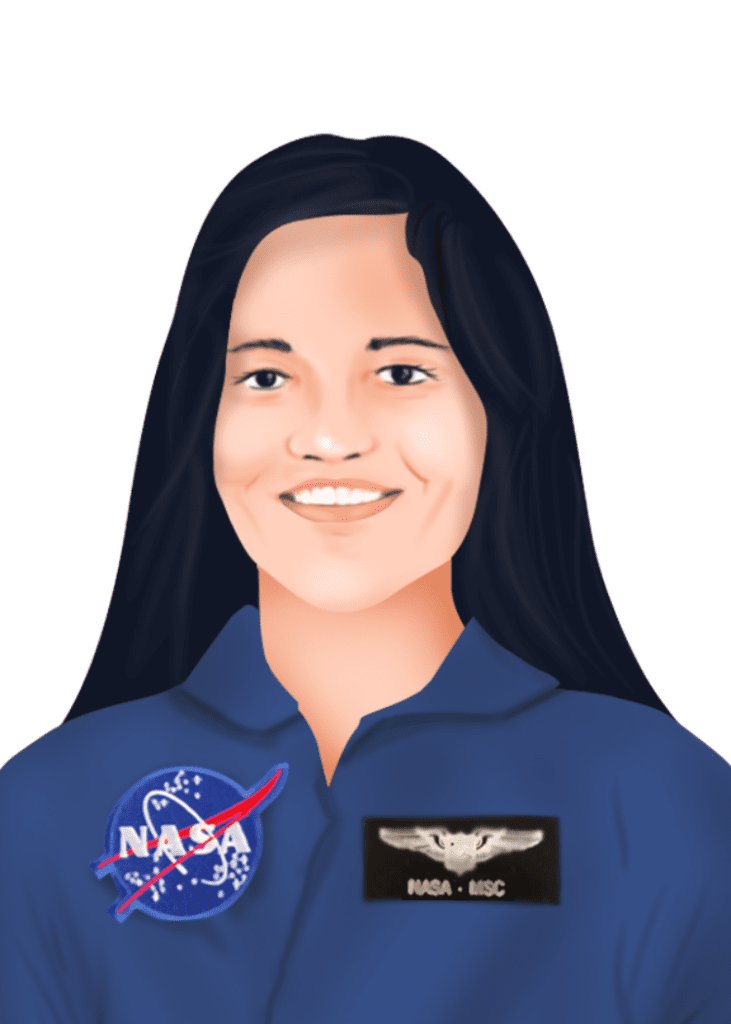Mechanical Engineer and Astronaut
Who is Kalpana Chawla?
It wasn’t until she started school that Kalpana Chawla was named. Her parents called her Montu, but it was Chawla herself who picked her own name from a selection when she entered the education system. Kalpana means ‘idea’ or ‘imagination.’ Something in her knew that it was that name that was the most fitting. And boy, was she right. As a child, Chawla grew an interest in flying after seeing a plane for the very first time. Afterwards, she would spend days with her father visiting her local flying club.
It’s to the surprise of no one that Chawla would go on to obtain a degree in aeronautical engineering from Punjab Engineering College. When selecting the courses, many of her professors tried to discourage her, as there were little to no opportunities for girls in India to follow this particular career path. Chawla listened to none of it! She knew this was the subject for her.
And she was right. After completing her engineering degree in India, Chawla immigrated to the United States and became a naturalized citizen. She obtained her master’s degree from the University of Texas and then earned her doctorate in aerospace engineering from the University of Colorado. Soon after she graduated, Chawla began working at NASA’s Ames Research Center, working on understanding how air flows around an aircraft during flight and incorporating computers. And then it came… Chawla’s chance to actually fly.
In 1994, Kalpana Chawla was chosen as an astronaut candidate. Three years later, Chawla was aboard the space shuttle Columbia on flight STS-87. It made 252 orbits of the Earth in just over two weeks. She was the first Indian-born woman to go to space. Despite the insistence that Kalpana was less capable because she was a woman, she preserved. Her talent and hard work have continued to inspire young people not only in India but around the world to consider careers in spaceflight.
3 Things We Love About Kalpana Chawla:
- In India, Chawla attended Tagore Baal Niketan Senior Secondary School, Karnal.
- Chawla’s first shuttle carried experiments studying plant reproduction in microgravity and how materials behave in space.
- Chawla felt passionately about providing science education opportunities for young girls in India, and invited her secondary school to take part in their Summer Space Experience Program.
Work Cited

